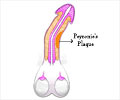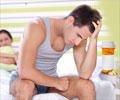Recent research has concluded that several young men treat their erection problems with erectile dysfunction (ED) drugs without a doctors prescription.
Recent research has concluded that several young men treat their erection problems with erectile dysfunction (ED) drugs without a doctors prescription. These results were revealed after an anonymous survey of 234 men aged 18-25 at three Chicago universities.
The research was led by Najah Senno Musacchio, MD, of Children’s Memorial Hospital in Chicago and their results were presented in San Francisco, at the Pediatric Academic Societies’ annual meeting. It revealed that about 95 percent of their participants were heterosexual. In addition 13 percent of them reported ever having difficulty getting or keeping an erection and 25 percent of these participants reported ever losing an erection while putting on a condom.However it was found that only 1 in 29 discussed those erectile problems with a health care provider. It was also found that participants who had ever had an erectile problem were also more likely to have had a prior sexually transmitted disease (STD) besides having more than 5 sexual partners over the past year. Men who had ever had lost an erection while putting on a condom were also more likely to use condoms infrequently.
6 percent of these participant revealed that they had used erectile dysfunction (ED) drugs, mostly from friends and other non-medical sources like the internet. The survey also found that only one of them had got ED medication from a health care provider.
The reasons for using these drugs included erectile problems besides enhanced sexual performance.
Researchers also found that nearly two-thirds of those who used ED drugs also reported mixing ED drugs with drugs such as marijuana, the sedative GHB, methamphetamine, alcohol and cocaine which seemed to boost sex drive and reduce inhibitions but diminish sexual performance.
According to Musacchio and his fellow researchers combination of ED drugs with alcohol or other drugs ‘permits men in altered states to have risky sex, potentially contributing to unwanted pregnancies and the spread of STDs.’
Advertisement









